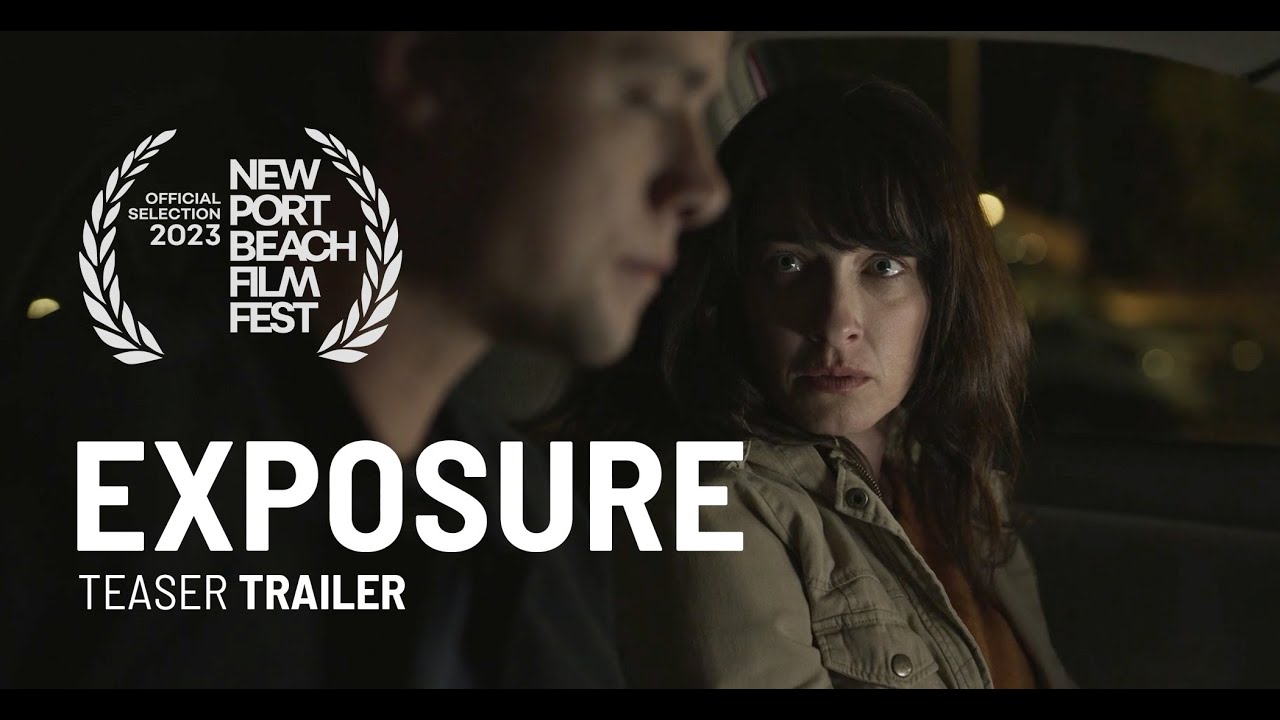EXPOSURE THE FILM 2023
Exposure, directed by Peter Cannon, is an outstanding motion picture. This is a hidden melodrama that shouldn’t ever be seen as anything other than a story of a poor man’s eventual capitulation in the face of pressure. The picture navigates easily through a grounded storyline that never goes out of its way to walk on additional ground besides its own: it is a character-centered premise that was written as a screenplay.
The movie has elements of a thriller, sometimes those of an action movie, and sometimes those of a horror movie. However, Cannon does an excellent job of keeping the tale inside the confines of something that isn’t very exhilarating but is quite potent in the realm of contemporary storytelling: the idea that the mind is capable of harboring evil beasts.

The account of Tanner’s life
Tanner, a man who works in information technology and is still making progress in his recovery from a traumatic event, is the protagonist of this movie. Someone abducted him and subjected him to various forms of abuse. Even though he has no idea who did it, he can’t stop thinking about the aftermath, and even more significantly, he can’t stop thinking about the possibility that something similar may occur again. Tanner is unsure of the reason why he was let free by the person who attacked him. Instead of acting like an old man, he would rather simply forget about it. It is not possible.
The OCD of Tanner
Tanner’s life is made even more miserable by the presence of his wife. She is put under intense scrutiny as he examines and reexamines his meals to ensure that he is not being poisoned in any way. She is in a hopeless situation, and she has no idea what to do. When they learn that Tanner’s abductor would soon be freed from jail, she suggests to Tanner that he participate in exposure treatment.
Tanner’s obsessive-compulsive disorder (OCD) goes out of control as his network of supporters also begins taking part in the most recent plan to free him of his fixation. In the movie Exposure, control plays a significant role, and the movie goes to great lengths to convey to the spectator that in the case of persistent OCD, management is nothing more than an illusion.
The exposure genre is a straightforward narrative.
In the primary act of Exposure, the focus is entirely on Douglas Smith demonstrating his full range of acting skills as a performer in the stage production. Tanner, a young employee who is certain that someone is trying to harm him, is played by a young actor who demonstrates right away in the movie that he is an excellent performer in the part. He does this by compiling all of the OCD-related goodies in the character of Tanner.
Even when their characters are being presented, there are very few films of this genre or kind that enable performers to entirely dominate the screen. This is especially true in independent film. However, Smith is unquestionably the mastermind of Exposure. There is potential here; additionally, no one can doubt the actor’s power or the spectrum of emotions that he can convey via his portrayal.

Component of the motion picture
Tanner, in the end, makes the decision to confront his issues and listen to the counsel that “discomfort’s the point.” But when one’s mental health is taken into account, can we say that this strategy is actually effective? Or are they just cheering for him to confront and overcome whatever it is that causes him to behave in the manner that he does? Exposure deviates from the norm in that it makes use of fiction as a source of information and forces Tanner to depend on extreme tactics that don’t seem to be all that useful.
Those who have issue with this particular feature of the movie should probably just skip it and instead watch a documentary that deals with the same topic. It is not a problem. This is Cannon’s carefully orchestrated setting, in which the experience of dread is intended to be taken seriously and faced head-on.
The conclusion of the tale
Cannon uses a conventional tale and actually crafts something intriguing out of the notion, so we won’t ruin the remainder of the movie for you by revealing any more details. The return to health of Tanner is unavoidable, but at what expense? With this particular topic being covered, the movie comes to a satisfying end. one that you wouldn’t anticipate, and one whereby Tanner recognizes that maybe there were certain considerations he should have weighed some time ago.
Cannon, who is also the writer of the movie, avoids the tragic genre as much as possible because he is interested in realism and making a statement on a real-life problem. This is the reason why the manner in which he wraps off the movie seems unexpected, but at the same time predictable given the circumstances. Absolutely you will have a few inquiries once all is said and done, but if Tanner is on the route to getting himself over control, are those issues really that important?

